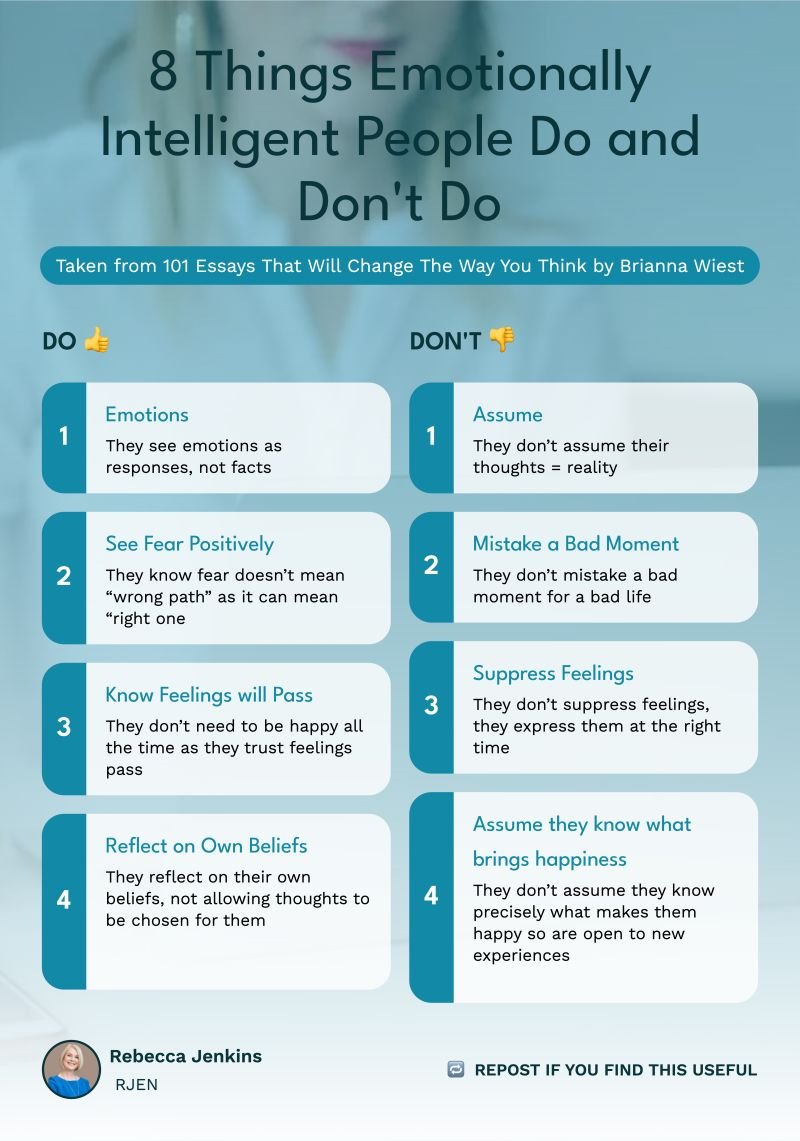Emotional intelligence (EQ) is often misunderstood as merely maintaining composure during stressful situations. However, its true essence extends far beyond this simplistic view. In her book, “101 Essays That Will Change The Way You Think,” Brianna Wiest articulates the core attributes of emotionally intelligent individuals, which are pivotal for personal and professional growth.
One fundamental trait of emotionally intelligent people is their ability to differentiate between thoughts and reality. They recognize that their thoughts do not always reflect the truth. This awareness allows them to approach situations with clarity and avoid unnecessary distress.
Additionally, emotionally intelligent individuals perceive emotions as responses rather than unchangeable facts. They understand that emotions can fluctuate and are not definitive indicators of their circumstances or choices. This perspective empowers them to embrace a variety of experiences, as they do not rigidly cling to preconceived notions of what will bring them happiness.
Fear, often viewed as a negative emotion, is redefined by emotionally intelligent people. They understand that fear can signal a path worth exploring rather than a reason to retreat. This openness enables them to face challenges head-on, fostering resilience and adaptability.
Another key aspect of emotional intelligence is the acceptance that happiness is not a constant state. Emotionally intelligent individuals allow themselves to feel a range of emotions, trusting that feelings are temporary. This acceptance aids in emotional regulation and supports mental wellbeing.
Moreover, they actively engage with their thoughts instead of allowing external influences to dictate them. This reflective practice encourages a deeper understanding of personal beliefs and values, leading to more authentic decision-making.
Crucially, emotionally intelligent people prioritize expressing their feelings appropriately rather than suppressing them. By communicating emotions at the right time, they foster healthier relationships and promote open dialogue in both personal and professional settings.
Lastly, they maintain perspective, recognizing that a single negative event does not define their lives. This understanding helps them build resilience and fosters a more optimistic outlook.
For leaders, cultivating emotional intelligence is essential. It enhances communication, teamwork, and overall workplace culture. Organizations benefit from leaders who embody these traits, as they create environments where employees feel valued and understood.
To assess your emotional intelligence, consider how many of these habits you practice daily. Reflect on how they impact your interactions and decision-making. Additionally, think about one emotionally intelligent habit that has positively influenced your life and share it with others to inspire growth and development in this vital area.



